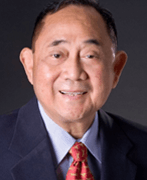We journeyed to Beirut, Lebanon and then to Homs, Syria from February 25 to March 2, 2019 on invitation by my good friend Alex Fu, a business leader in Australia, China, and the Philippines, and his business partners Tony Lam, a young Chinese business executive based in Sydney, and Sam Fayad, a Lebanese but has lived in Australia since he was 17 years old.
Mr. Fayad is a leading real estate developer in Australia and is looking for investment opportunities in the Philippines and Southeast Asia. We were joined in this trip by Alex Fu’s lovely Filipina wife, Anne Fu of Davao and Pangasinan, and my Assistant, Aldwin Requejo, who worked as junior executive in the Secretariat of the Philippine House of Representatives for 17 years.
The last time we visited Beirut was some 40 years ago, when we pioneered as prime contractor in port operations in Jeddah on the Red Sea and Jubail on the Persian Gulf (Arab Gulf), as well as in oil drilling, infrastructure, and mass housing in the Middle East and North Africa. So when Alex Fu invited us to join him in Beirut, we thought it was an opportunity to set foot once again in the “Paris of the Middle East” and rekindle old friendships, established more than four decades ago.
Lebanon was once part of the great Phoenician Empire, composed of states located along the coast of the Mediterranean Sea stretching through what are now Syria, Lebanon, and northern Israel. The Phoenicians were considered “the best sailors of the Ancient World, exploring the Mediterranean region and made advances in shipbuilding, maritime trading, and maritime technology.” (Wikipedia) They also invented the alphabet in 1200 B.C., which is the basis of the alphabet we use today.
Today, Lebanon is the most religiously diverse country in the Middle East, composed of the two divisions of Islam (Sunni and Shia) and Christianity (the Maronite Church, Orthodox Church, Melkite Greek Catholic Church, Protestant Church, and the Armenian Apostolic Church).
In Beirut, we met with Speaker Nabih Berri of the Parliament of Lebanon, perhaps the longest serving Speaker in the world, as he has been holding the post since 1992 or for 27 years. Berri, a Shia Muslim, is most knowledgeable in geopolitics and religious history. We exchanged ideas on the prospects of peace in the Middle East.
We also invited him to address the 20th Founding Anniversary and 11th General Assembly of the International Conference of Asian Political Parties (ICAPP) to be held in Manila next year. The ICAPP, which we founded and launched in Manila in September 2000, is now composed of more than 300 ruling, opposition and independent political parties from 52 countries in Asia, including the political parties of Lebanon. In fact, Lebanon’s Future Movement Party and Free Patriotic Movement Party are represented in the ICAPP Standing Committee, which we Chair.
It is interesting to note that in Lebanon, the President must be a Maronite Christian, the Prime Minister a Sunni Muslim, and the Speaker of Parliament a Shia Muslim. This agreement helps provide unity and stability in a country of diverse religions.
We also exchanged views with the Deputy Speaker of Parliament, Elie Ferzil, an Eastern Orthodox Christian and former Information Minister, who is also very conversant in geopolitics. Ferzil reminisced to us his visit in Manila in the late 1970s and said he looked forward to visiting Manila again. We also invited him to attend the ICAPP conference in Manila next year.
We also paid a courtesy call on Maronite Church Patriarch Bechara Boutros al-Rahi, who told us that our own beloved Cardinal Luis Antonio Tagle was arriving in Beirut shortly to address the Conference of the Caritas Regional Office for the Middle East and North Africa. Cardinal Tagle serves as President of Caritas Internationalis.
We remembered meeting the then Cardinal Patriarch Anthony Peter Khoraish, who became a friend, during our visit in Beirut in the 1970s. Cardinal Khoraish passed away in 1986.
We were also happy to meet with a dear friend of some 40 years, Hany Salaam, who is one of the successful business leaders in the Middle East, Africa, and Europe. Hany Salaam, who has been living in London for many years, flew to Beirut to welcome us. His daughter, Ghida, is married to Prince Talil bin Muhammad of Jordan, first cousin of the current King Abdullah II. If we wanted to, with his experience in economics, entrepreneurship, and diplomacy, he could have been a great Prime Minister which had been offered him in the past as were his uncles who served in Lebanon.
In the course of our visit in Lebanon, we drove to Homs Governorate in Syria, a three-hour drive from Beirut and met with its intrepid and far-sighted Governor Talal Barazi, who told us that seventy percent of Homs was ravaged during the war with ISIS. We saw up close the atrocious damages in the community. Some residents have returned to their homes and are beginning to rebuild their lives.
As of this writing, some 500 ISIS fighters have surrendered to Syrian military forces in Baghouz, in eastern Syria, near the Iraqi border, the jihadists’ last remaining enclave. We hope the vicious fighting there will have come to a close when this column appears but we are afraid the ISIS cells will move to other regions as they have small cells infiltrating parts of Europe and who recently intruded in force into our Marawi City, leading to its near destruction and is today in the midst of successful rebuilding by the Duterte government.







